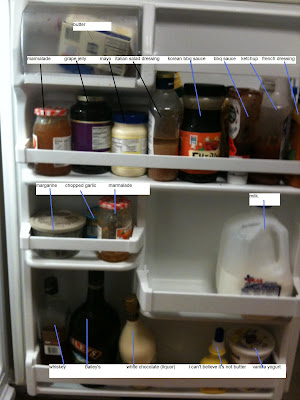I was reading a few things today, and that got me thinking.
I'll start with a disclaimer, which everyone in medicine can more/less ignore :
===MDs+associated staff ignore===
Patients often present to the ER or clinic with a host of problems, many of them chronic problems (e.g. hypertension, diabetes, high cholesterol) and one or two (hopefully not more than that) acute problems that brought them to the ER in the first place. General medicine teams admit the patient and (try to) manage all the problems, but if it's a more
involved case, then consults are requested. Cancer and oncological emergencies almost always involve Heme/Onc consultations. Severe respiratory distress will command an ICU* consult, and they might decide to admit the patient to the ICU. Any sort of neurological problem might warrant a neurology consult.
Another reason to get a consult (in this case, a specific MD's consult) is if a patient is admitted into the hospital and his** particular MD staffs that hospital. He might want to come see that patient, and being familiar with the patient's history. Which, brings me to my next point.
The first thing you do is get a 'H&P' - history and physical. There are various handy templates to write all this stuff down on. You generally have a one-sentence about what's going on with the patient, whether they're stable and maybe a few vital signs but other than that, you're flying solo (comment on why I think this is a good idea below). The history consists of a fuckton of questions. An absolute fuckton. As an example you might ask the patient - "What brings you in today?", and they'll say one thing (again, hopefully just one) - "cough". Then you begin. When did it start? How many times do you cough? How painful is it? Do you cough anything out? Do you cough at night? Does it get worse at night? Better during the day? The opposite? Anyone else in the family sick? Do you have any other symptoms (might want to list a few) with your cough? There are a few mnemonics to help you formulate a list of questions, but it's good to get as many details as possible, as fast as possible. You then move on to other things like a medical history, a surgical history, a social history, a family history, medication history, etc. Each of which comes with it's barrage of inquiries.
You then do a physical exam, and if you're pressed for time, you will do a focused physical exam. Does that mean if a patient comes in with cough, you don't look at their legs? Yes and no. If he's young and has a clean medical history, there probably is no need to. If he's old and having a bit of difficulty breathing with exercise (you would find this in the history), then you might want to check for pedal edema (swelling around the ankles) - maybe his cough is from fluid spilling into his lungs (which would spill into his legs as well in a similar mechanism).
I'm not sure how much sense I'm making here, but I hope I got the point across that there are a ton of questions, and then, an exam. So you'll get your twenty thousand questions (+exam) from the general medicine team which is admitting you, and twenty thousand questions (+exam) from every consult service, as they have to do an 'H&P' when they consult as well.
tl;dr -
ಠ_ಠ All of it is important. Read it...
===MDs+associated staff ignore===
I remember when I was in my St. Luke's month of medicine on the Heme/Onc consult service, patients would (rightfully) complain and moan about the millions of questions that are being asked. And it's true, a lot of these questions sound very much the same.
But in reality (otherwise this post would be pretty short), the questions really aren't. Each consult service has this beautiful thing called
BIAS. Now, bias usually comes with its own negative connotation, but it's immensely helpful in organizing patient care and teasing out details about this patient's history.
So I would ask my twenty thousand questions, and because I was on the Heme/Onc service, I would follow an oncology line of questioning. I would focus my history and physical on just that. The general medicine team might have details for me about the patient's cancer, but because I have instilled myself with a
predilection for oncology, I would very likely find out more. Makes sense so far, right?
Well what if a patient comes in with a problem that isn't so clear? A good general medicine team (almost all are) will pull in all sorts of seemingly zebra but necessary consults. Who knows what underlying mechanism might be causing that cough - maybe it's a nephrology thing and he's spilling protein into his urine... maybe it's cancer and there's a small tumor causing an obstruction. You
want your oncologist / nephrologist / pulmonologist / infectious disease consult to be fighting (reasonably) for their view of the etiology. You
want to encourage them to ask as many questions as they want, almost arrogantly proving (or maybe, disproving) the need for their consult.
There is only one right answer, and if the general medicine team has done the right job in picking consults, you'll have your answer, very, very quickly. And an expedient answer is in the best interest of all of us.
So I'll be asking my twenty thousand slightly different questions concordant with the team I'm on, in the best interest of everyone around.
Also, +exam.
*: BTGH calls it MICU, which throws me off because I keep thinking
mobile intensive care unit (ambulance) instead of
medical.
**: I would have written his/her but I think current style is to say just "his" which encompasses both? Somebody correct me.





